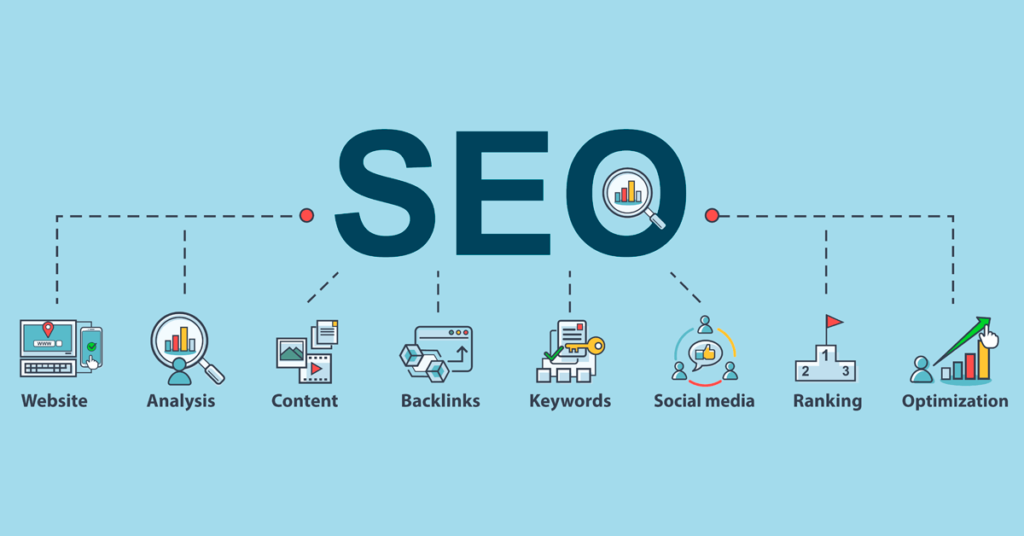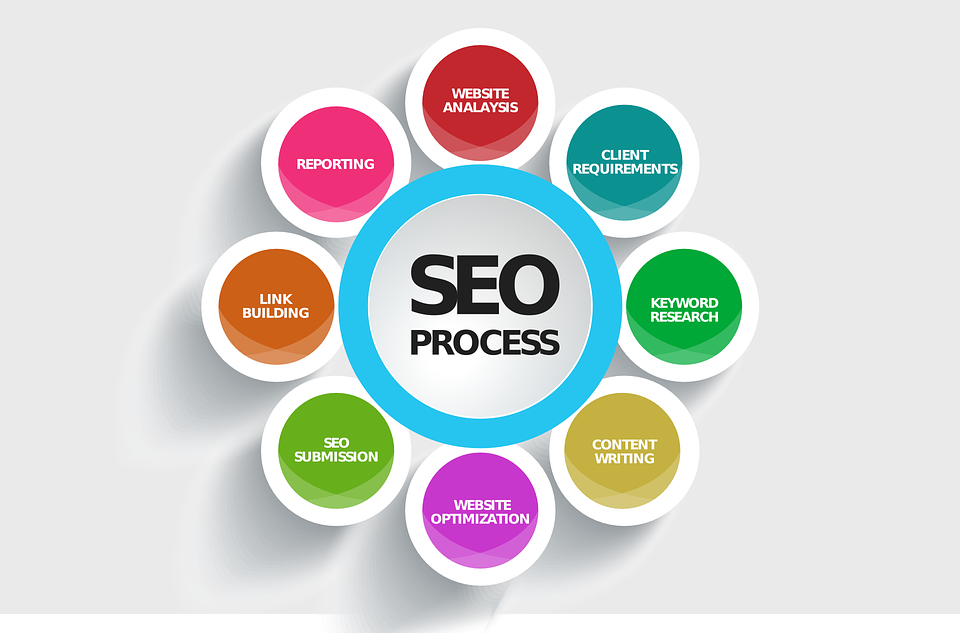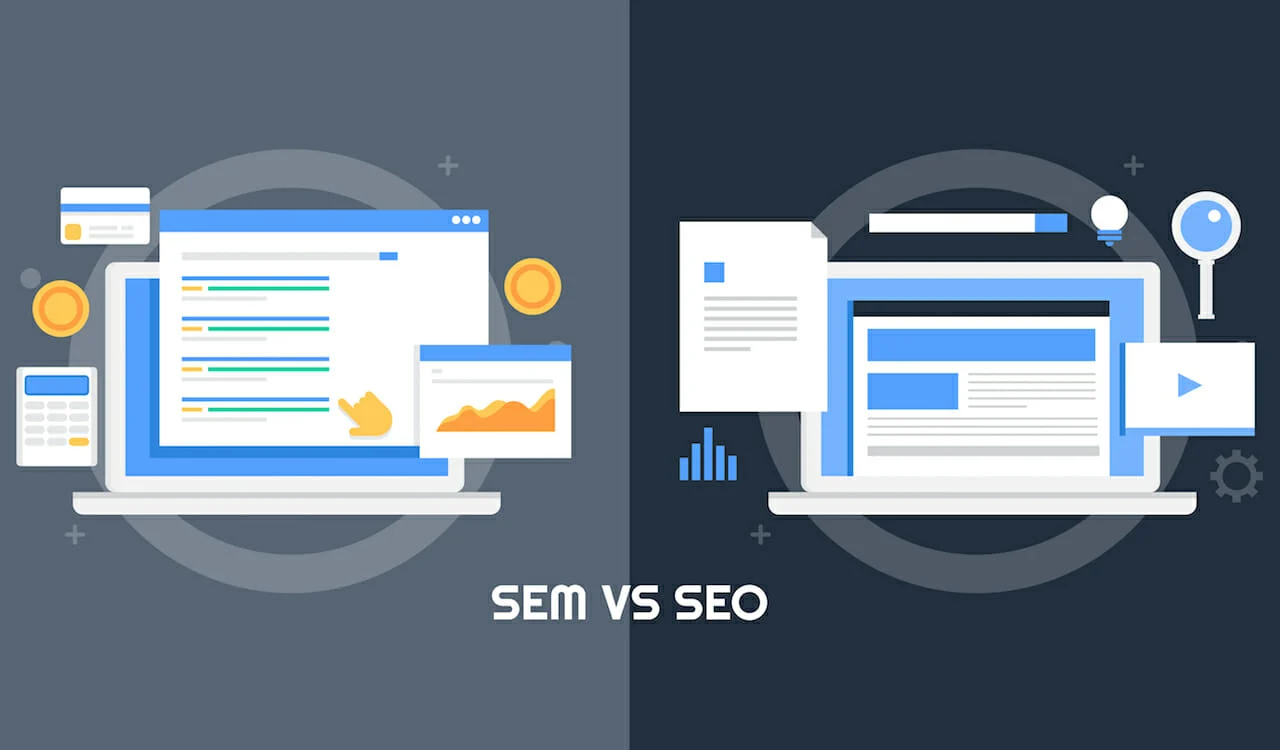Search Engine Marketing refers to a variety of techniques and strategies a company can use to generate more visitor traffic from search engine results pages (SERPS) to a website. The goal of SEM is to promote a website’s visibility using paid search, contextual advertising, and organic search rankings. Basically, SEM is a broader concept that includes both SEO and PPC together – in a general sense it’s a marketing strategy that involves managing a brand or website’s total presence in search engines People often get confused between SEO and SEM. Search Engine Optimisation (SEO) is a powerful way to drive traffic and rank without paying for Ads while SEM is a practice of advertising your brand and products through search engines to increase conversions. Basically, SEM is a practice of promoting a business using paid ads that appear on SERPs. It helps advertisers to show their ads on the search engine to the customers who are ready to make a purchase at the precise moment

Social Media Is The Next Big Thing For SEO
Social media is one of the fastest-growing elements of a comprehensive and modern SEO strategy, and this is because an increasing number of consumers are turning to these platforms to engage with brands. Nearly 80 percent of people turn to Facebook when they want to find interesting content, and this means there’s a huge opportunity there for you to reach new audiences, attract more prospects, and develop lasting relationships with customers
SEO: The most cost-effective marketing tactic
Many websites and business owners choose to begin with SEO since it is often more cost-effective than other marketing tactics. Statistically speaking, 41% of marketers worldwide say they get the highest ROI from SEO. By 2019, organic search engine results were generating 65% of website traffic. Plus, roughly 64% of marketers are now investing efforts into SEO, meaning that the majority of your competitors could be taking advantage of one of the most successful methods of business growth SEO is important as the foundation for a website that Google considers credible. Many people will trust organic search rankings more than paid search results and, if you can have both an organic ranking and a paid ad at the top of the results page, you increase the chance that users will visit your site

How to Get PPC Traffic
Typically PPC will only provide your website sustainable traffic so long as you continue paying for it. It’s also worth mentioning that, in most cases, users tend to click on highly placed organic listings over ads. Also, there are many new search queries every day. It seems like it become expensive to invest in PPC marketing for all of the relevant keywords you wish for your website to rank for
SEO: How to manage your reputation online
Reputation management isn’t always something people talk about when they discuss SEO, but it’s an important element that shouldn’t be ignored. Reputation management is all about controlling what people see when they look for your business online. For instance, say you were a restaurant that received several bad Yelp reviews in a row and got into an immature spat with a customer on Facebook. After that, any potential customer who uses the internet to decide whether or not to dine at your establishment is going to encounter bad reviews and the social media argument before anything else, and that’s the reputation your restaurant will have from then on
Google’s Quality Score is a measure of your ads’ performance
Again, it’s not necessarily about the spending. Google also evaluates the Quality Score of your ads. They want to see how much you’re willing to pay, but they also want to ensure that you’re not putting junk out onto the web. Combined – your maximum spend, plus ad quality — spits out what is known as an ad rank





